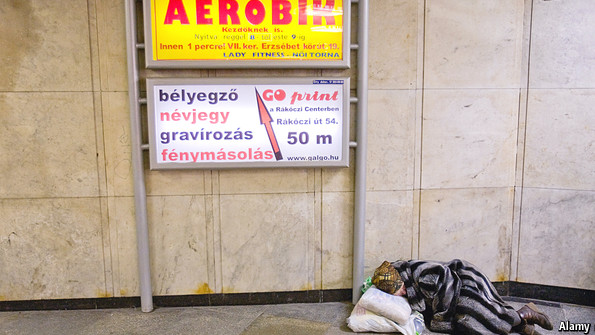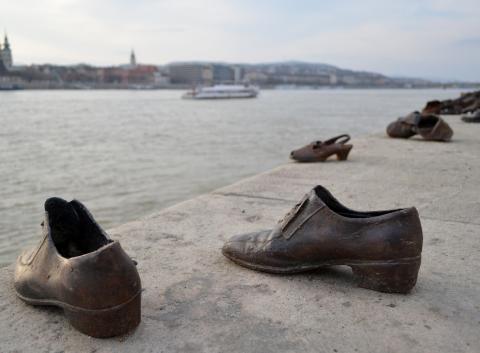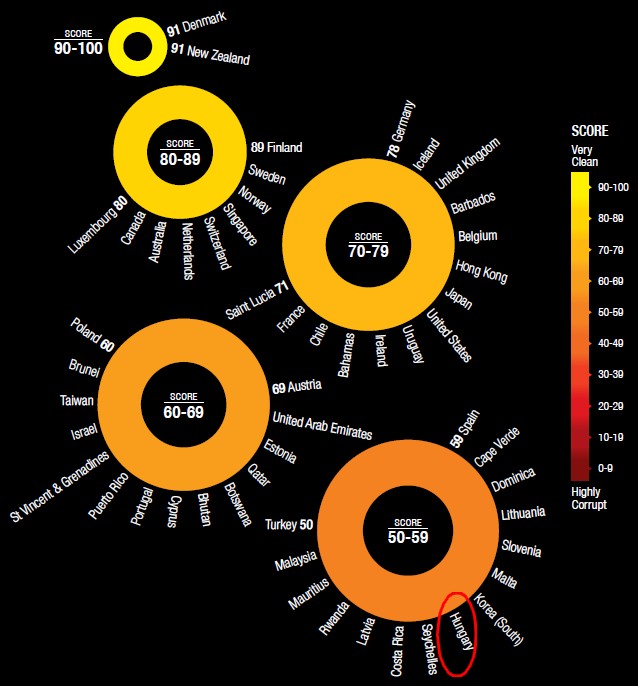Ungarns Kulturpolitik hat einen nationalistischen Kurs eingeschlagen. Das hat auch für das Kortárs Drámafesztivál Budapest und seine Leiterin Konsequenzen
Die gute Nachricht zuerst: Béla Pintérs jüngstes Stück wird im kommenden Mai bei den Wiener Festwochen zu sehen sein. Neben Kornél Mundruczó, Árpád Schilling und Viktor Bodó gehört Pintér zu den Galionsfiguren des ungarischen Theaters, die auch im Ausland Furore machen. In Titkaink (Our Secrets), das nun beim Kortárs Drámafesztivál, dem Festival für zeitgenössische Theaterkunst in Budapest, zu sehen war, exemplifiziert Pintér in einem fabelhaften tragikomischen Schauspiel kommunistische Geheimdienstmethoden der 1980er.
Pintér bekommt neuerdings nur mehr die Hälfte seiner bisherigen staatlichen Unterstützung, wie er in einem Publikumsgespräch am Sonntag bestätigte. Auch das Dramafestival hat mit einem massiv geschrumpften Budget zu kämpfen. Das von Mária Szilágyi geleitete Festival in Budapest konnte seinen internationalen Programmteil heuer nicht ausrichten. 2012 blieb die Unterstützung ganz aus. Dabei hat Minister Zoltán Balog in einem STANDARD–Interview im Juli angegeben, das freie Theater bekomme mehr Geld als zuvor.
STANDARD: Was stimmt nun?
Szilágyi: Die Gesamtfördersumme mag höher sein als im letzten Jahr, aber wie wird diese Summe aufgeteilt? Darauf kommt es an. Es wurde einiges neu gegründet, etwa wurde ein Verband von freien Gruppen auf dem Lande ins Leben gerufen. Jetzt stimmen die finanziellen Proportionen mit den jeweiligen Leistungen nicht mehr überein. Unser Festival bekommt eine Million Forint, umgerechnet nur 3000 Euro. Das ist unter jeder Professionalitätsgrenze. Ich kann meine eigene Arbeit nicht bezahlen. Am härtesten trifft es aber die Künstler, die die Kosten für die Aufführungen allein tragen.
STANDARD: Will die Regierung das unabhängige Theater nicht?
Szilágyi: Früher stand im Gesetz, dass ein Zehntel der Fördersumme, die an die Stadttheater geht, der freien Szene zur Verfügung stehen soll. Dieses Gesetz hat Attila Vidnyánszky, der neue Direktor des Nationaltheaters, in seiner zweiten Funktion als Vorsitzender der Theaterkommission zu Fall gebracht. Nunmehr besteht gesetzlich keine Pflicht mehr, die freien Theatermacher zu unterstützen. Es ist deutlich, dass uns die Politik nicht haben will.
weiter: derStandard






 MMA countdown – Free Artists welcomes the resigned MMA-members!
MMA countdown – Free Artists welcomes the resigned MMA-members! TRANSZPARENCIÁT!
TRANSZPARENCIÁT!